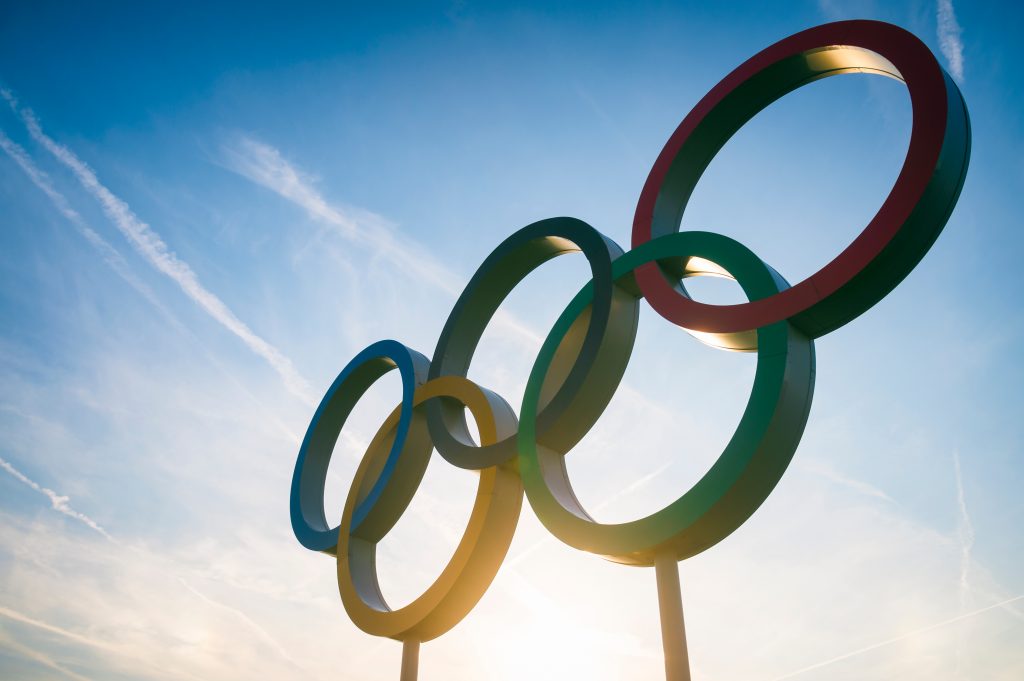
- ARAB NEWS
- 14 Jul 2025

Calls for canceling this summer’s Tokyo Olympics and Paralympics are growing, as coronavirus cases have been rising rapidly in many parts of Japan, six months before the opening ceremony for the Olympics.
In a parliamentary policy speech on Monday, Prime Minister Yoshihide Suga reiterated that the government is committed to holding the Tokyo Games this summer.
But he has yet to present a roadmap to contain the coronavirus crisis. An increasing number of people, including members of Suga’s ruling Liberal Democratic Party, have started taking a pessimistic view about the games.
A decision, due possibly in spring, on whether to hold the games looks certain to affect the fate of the Suga administration, pundits said.
Up to US Participation
“The Olympics can’t be held without some 6,000 to 7,000 staff from participating countries, on top of athletes,” Yoshiro Mori, president of the Tokyo Olympic and Paralympic organizing committee, was quoted as telling a person close to him recently.
“Japan will not be able to secure such a large number of staff workers alone, and it will be difficult,” Mori was quoted as saying.
In his Monday speech, Suga said that the Tokyo Games, which was postponed by one year due to the pandemic, should be held as “proof that humanity has defeated the novel coronavirus.”
But an increasing number of LDP members believe that there will be no choice but to cancel the games.
Many LDP members think that the Japanese government will inevitably extend its coronavirus state of emergency beyond the Feb. 7 expiration date. One senior party official said that the games will not be held if the emergency declaration is extended.
Many coming-of-age ceremonies were canceled due to the coronavirus. The LDP official said that young people would get angry and ask “why the Tokyo Games will be held after many coming-of-age ceremonies were canceled.”
An LDP faction leader said the Suga administration would take a hit if the Tokyo Games is canceled.
“The prime minister’s political responsibility would be sought, as he has been insisting on holding the games as a proof of victory over the coronavirus,” the faction leader said.
A source close to Suga said, “It’s up to the United States whether the Tokyo Games can take place.” The games “would have no sponsors if U.S. athletes are absent,” the source said.
The New York Times last week reported, “Plans for the postponed Tokyo Olympic Games are growing more uncertain by the day.”
“We need to do the best we can to prepare for the games at this moment, but it could go either way,” Japanese administrative reform minister Taro Kono was quoted by overseas media as telling Reuters.
Public Opinion Backing Cancellation
Opinion polls in Japan show that the proportion of respondents in favor of the Tokyo Games’ cancellation or postponement exceeds that of those calling for the event to go ahead.
“I wonder why many people have a low expectation of holding the games,” a senior Japanese government official said.
At a press conference on Jan. 7, Suga said Japan will start coronavirus vaccinations in late February. The atmosphere will change once thorough measures against the virus are taken, he said, showing his expectation for vaccinations.
But vaccinations have only started in Europe and the United States.
Challenges include vaccine supplies to emerging economies, what to do about Olympic and Paralympic athletes refusing vaccinations and risks associated with adverse effects from vaccines.
In addition, the effectiveness of vaccines against variants of the coronavirus remains unknown.
Since September, the Japanese government, the Tokyo metropolitan government and the organizing committee have been discussing ways to prevent athletes and others from being exposed to the virus during arrival in Japan and at games venues.
Suga aims to hold the games with spectators to give a boost to the Japanese economy. He had led efforts to relax entry restrictions to this goal.
But he was forced to reverse course after coronavirus variants were confirmed in Japan. The government halted a program allowing foreigners, chiefly business people, from some economies to enter Japan.
The government plans to make a decision in spring on whether to allow spectators at the Tokyo Games.
Last year, the one-year postponement of the games was decided just before the torch relay was set to begin.
This time, the focal point is whether the government is able to lift the state of emergency before the start of the torch relay, set for March 25 in Fukushima Prefecture.
JIJI Press